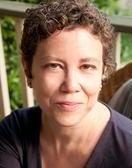
I don’t always blog about fictional interfaith families, but when I do, it’s because they’re discussing the identity of interfaith children. Season 5 of Downton Abbey, which concluded this week in the US, featured the courtship and interfaith marriage of Rose (niece of Lord and Lady Grantham) and Atticus (son of Lord and Lady Sinderby). But for me, the most interesting episode aired last week, when we witnessed the following conversation between Lord Sinderby and Atticus:
Lord Sinderby: “The second Lord Sinderby may be Jewish, but the third will not…”
Atticus: “Any children we may have will be brought up to know both sides of their heritage.”
Lord Sinderby: “Your children will not be Jewish. Don’t you understand that! Their mother will not be Jewish, and neither will they.”
Atticus: “They may choose to convert. Or are you implacably opposed to giving anyone a free choice.”
Lord Sinderby, quietly: “How easy you make it sound…”
Although the episode takes place between the two World Wars, that conversation sounded very familiar, very modern, and possibly painful, to a lot of contemporary interfaith families. I was not surprised to learn that it was based on an experience the writer Julian Fellowes had himself, while dating a Jewish woman. Interfaith couples today still face worried and frustrated family members who try to discourage interfaith marriages based on the following myths:
1. The myth that the children cannot be Jewish, if their mother is not Jewish. This is no longer the policy of Reform Judaism, the largest Jewish movement in America, and it hasn’t been since 1983. We now have rabbis with mothers who never converted to Judaism, including Jewish luminaries such as Rabbi Angela Buchdahl.
2. The myth that you can’t raise children with both religions. I did it. Hundreds of families are providing interfaith education to interfaith children in organized interfaith family communities. And clergy and religious institutions are beginning to acknowledge this choice as part of the religious landscape. A Chicago rabbi recently told me that fully half of the interfaith couples he marries plan to raise children with both religions. And, I would argue that there is a level on which all interfaith children are exposed to both heritages, even if you give them a single religious label. So Atticus may have sounded naive to Lord Sinderby, but I would argue that he was simply ahead of his time.
3. The myth that Judaism is so strongly tribal that you cannot convert into it. Many people choose Judaism and convert. And some interfaith children can and do choose to convert in order to gain full membership in the movement of their choosing. Sadly, Lord Sinderby is right that it isn’t always easy, and Jews-by-choice still face exclusion, restrictions and prejudice in some Jewish communities. But that’s not a reason to avoid interfaith marriage, or avoid conversion. It is a reason to continue to press for policies that will include and welcome interfaith families.
Finally, Atticus makes reference to free choice in religious practice. In the US, we are lucky enough to have the freedom to choose our own religious identities and practices, to love across traditional boundaries, and to educate our children as we see fit. And our children, whether born into single-faith or interfaith families, will grow up to do the same.
Being Both: Embracing Two Religions in One Interfaith Family is available now in hardcover, paperback and eBook from Beacon Press.

